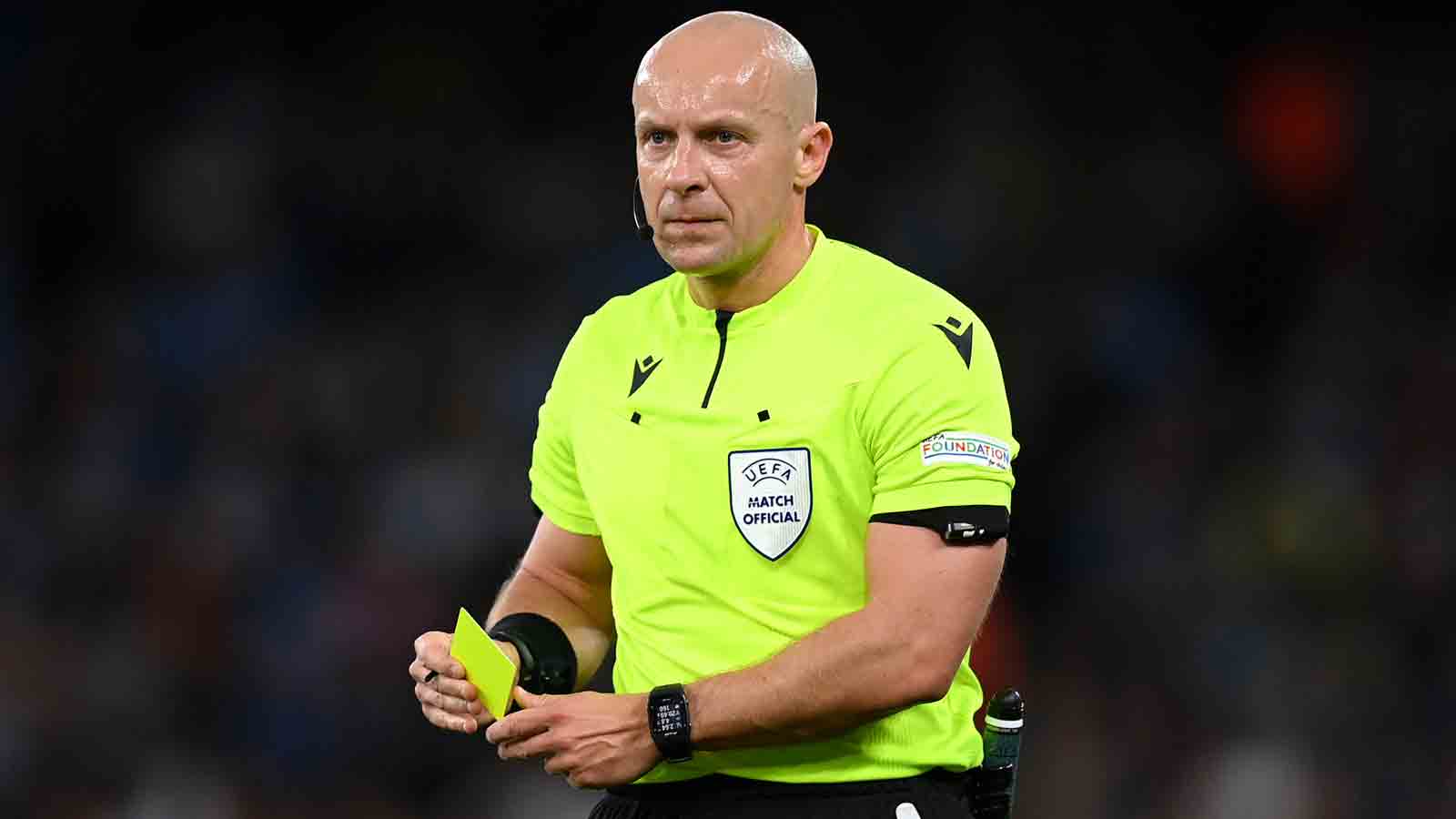
Polish soccer referee Szymon Marciniak apologized Friday for speaking at a business event tied to a far-right politician and was confirmed by UEFA to officiate next week's Champions League final.
Marciniak's appointment for the game between Manchester City and Inter Milan on June 10, months after he refereed the World Cup final in Qatar, was at risk Thursday after a Warsaw-based anti-racism group alerted UEFA to his conference appearance this week.
UEFA said Friday it accepted Marciniak's “profound apologies and clarification” and that anti-racism group Never Again had also then asked for the referee to be retained.
Get top local stories in Southern California delivered to you every morning. >Sign up for NBC LA's News Headlines newsletter.
“I want to express my deepest apologies for my involvement and any distress or harm it may have caused,” Marciniak wrote in a statement published by UEFA, adding he was “gravely misled and completely unaware” of the links to Slawomir Mentzen, a leader of the far-right Confederation party.
“I had no knowledge that (the conference) was associated a Polish extreme-right movement. Had I been aware of this fact, I would have categorically declined the invitation,” the referee wrote. “I am committed to learning from this experience and ensuring that such lapses in judgment do not occur in the future."
UEFA noted Never Again's acceptance of the Marciniak apology and by “firmly asserting that removing him would undermine the promotion of anti-discrimination.”
“Based on the information provided, UEFA confirms that Mr. Marciniak will fulfil his role as the referee for the 2023 UEFA Champions League final,” the European soccer body said.
Marciniak is widely seen as the world's best referee and was supported Friday by Poland’s government as UEFA considered removing him from next week's match in Istanbul. Polish media reported that Marciniak had been dropped by UEFA but efforts were being made to restore him.
Marciniak wrote on his Instagram account late Thursday that he "never supported nor legitimized any political party, organization or individual politician.”
However, neither the Instagram post nor an earlier statement to Never Again offered an apology or acknowledged the possibility of an error of judgment.
Polish sports minister Kamil Bortniczuk defended Marciniak earlier Friday. He wrote in a letter to UEFA circulated by national media that the referee's speech at an event this week had “nothing to do with politics.”
It was a “harmful manipulation,” the sports minister wrote, to link the referee to the politics of Mentzen, claiming the men had not met around Marciniak giving a 45-minute speech of a “strictly business, motivational, and inspirational character.”
Mentzen, whose party has promoted antisemitic, homophobic and sexist views, later used social media to praise Marciniak as the standout speaker at the networking event.
UEFA said in a statement Thursday “the whole football community abhor the ‘values’ that are promoted by the (political) group in question.”
The London-based Fare network, which helps identify racism and discrimination incidents at international soccer games, said it welcomed UEFA's quick intervention and the referee's apology.
“If the challenges of discrimination and exclusion in football, and in our societies at large, are to be faced, clear leadership is necessary," Fare chair John Olivieira said in a statement. "Football cannot be allowed to be seen as a space that tolerates extremism.
“We want to thank our colleagues Never Again in Poland for their vigilance. We deplore any threats to them or attempts to discredit them as a consequence of their work.”
The head of Never Again, Rafal Pankowski, told The Associated Press it “has gotten a flood of hateful messages. It totally goes beyond anything we have ever experienced.”
Marciniak also refereed for FIFA at the 2018 World Cup and for UEFA at the 2016 European Championship, as well as in club competition games over several seasons. He missed Euro 2020 while recovering from a heart issue after a COVID-19 infection.
___
Associated Press writers Vanessa Gera and Monika Scislowska in Warsaw, Poland, contributed to this report.



